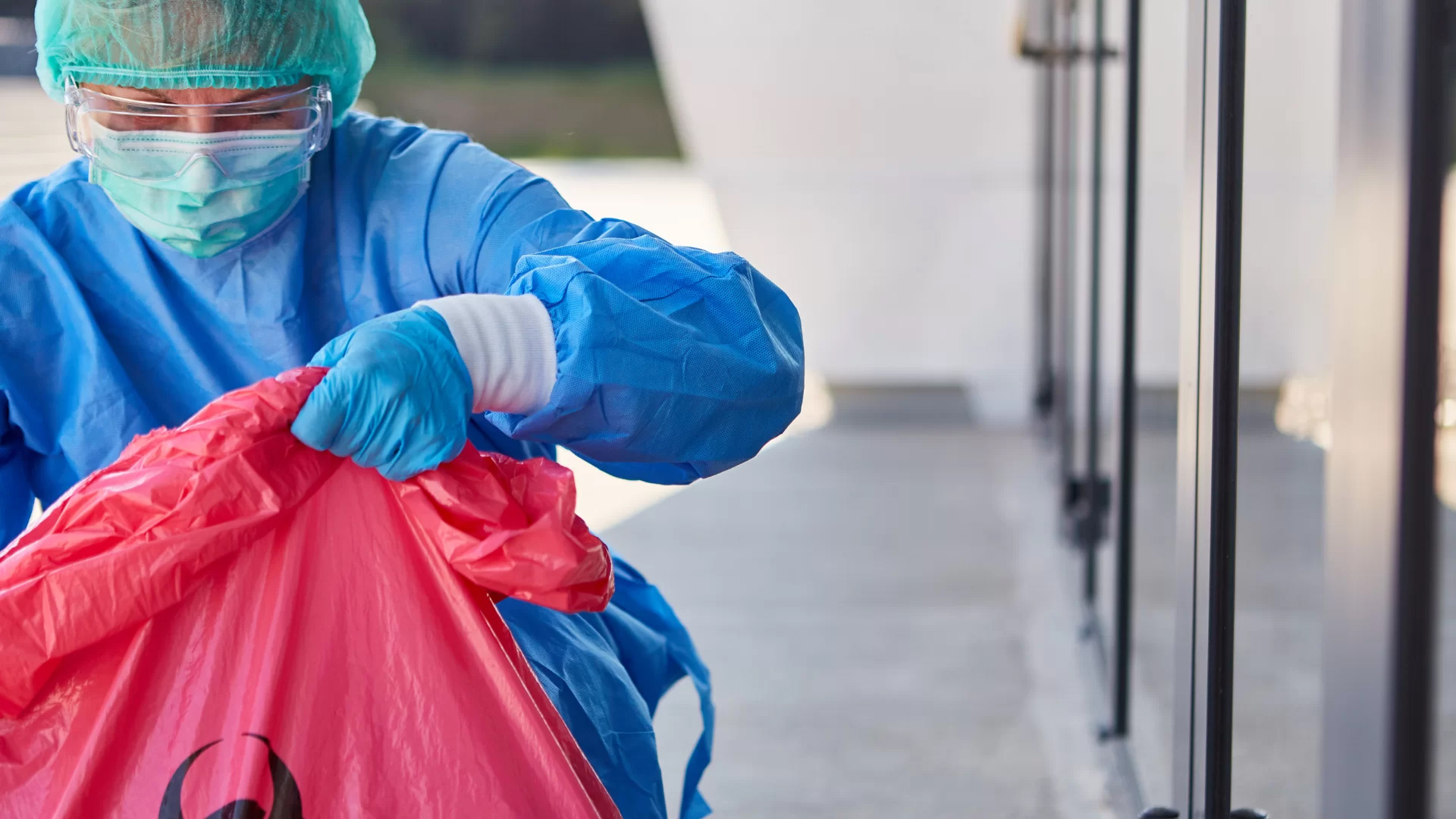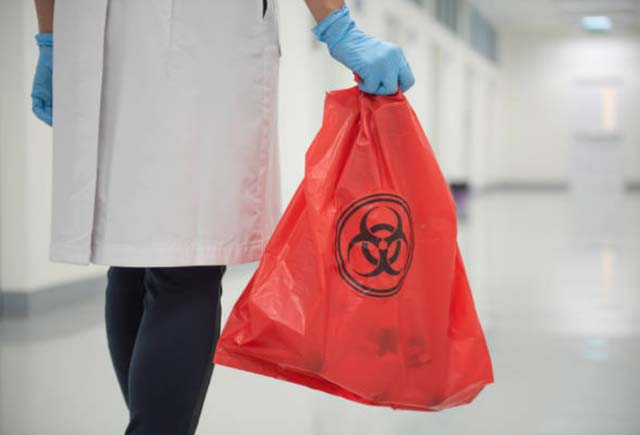Introduction
In today's world, proper waste management is crucial to protect the environment and human health. One area that often goes overlooked is medical waste disposal. Improper disposal of medical waste can have severe consequences on the environment, especially in densely populated areas like New York. This article will explore the environmental consequences of improper medical waste disposal in New York and highlight the importance of utilizing the best waste management services in the region.
The Environmental Impact of Improper Medical Waste Disposal
Improper medical waste disposal poses significant risks to both the environment and public health. When medical waste is not handled or disposed of correctly, it can lead to a range of harmful consequences. These consequences include:
1. Contamination of Water Sources
Improperly disposed medical waste can contaminate water sources such as rivers, lakes, and underground aquifers. This contamination occurs when hazardous substances from medical waste seep into the ground or are washed into nearby water bodies during rainfall. Once contaminated, these water sources become unfit for human consumption and pose a risk to aquatic life.
2. Air Pollution
Medical waste contains various chemicals and pathogens that can be released into the air if not properly managed. Incineration, one common method of medical waste disposal, releases harmful pollutants such as dioxins and furans. These pollutants contribute to air pollution and have detrimental effects on air quality and respiratory health.
3. Spread of Infectious Diseases
Improperly handled medical waste increases the risk of spreading infectious diseases. Needles, syringes, contaminated bandages, and other infectious materials can transmit diseases such as HIV/AIDS, hepatitis B and C, and many others if they come into contact with humans or animals.
4. Soil Contamination
Improper disposal of pharmaceuticals and chemicals found in medical waste can lead to soil contamination. When these substances seep into the soil, they can affect plant growth and contaminate crops. Consuming contaminated crops can have adverse effects on human health.
Best Waste Management Service in NY
To mitigate the environmental consequences of improper medical waste disposal, it is crucial to utilize the best waste management service in New York. Choosing a reputable and experienced waste management provider ensures proper handling, transportation, treatment, and disposal of Hazardous Waste medical waste. The following are some key factors to consider when selecting the best waste management service in NY:
1. Compliance with Regulations
The best waste management service in NY should comply with all federal, state, and local regulations regarding medical waste disposal. They should have the necessary permits and certifications to handle and transport hazardous materials safely.
2. Proper Segregation and Packaging
A reliable waste management service understands the importance of proper segregation and packaging of medical waste. They should provide appropriate containers for different types of waste, ensuring that hazardous materials are securely stored to prevent leaks or spills.
3. Transportation Safety
Transporting medical waste requires special precautions to prevent accidents or spills during transit. The best waste management services use dedicated vehicles equipped with safety features such as spill containment systems and GPS tracking.

4. Treatment Methods
The chosen waste management service should employ environmentally friendly treatment methods for medical waste. Options such as autoclaving, microwave treatment, or advanced technologies like plasma gasification ensure efficient sterilization and minimize environmental impact.
5. Disposal Options
Proper disposal of medical waste is essential to prevent contamination and reduce environmental harm. Reputable waste management services offer various disposal options, including landfilling, incineration, or recycling when applicable.
Hazardous Waste Disposal Service New York: Ensuring Safety and Compliance
When it comes to hazardous waste disposal service in New York, it is crucial to prioritize safety and compliance with regulations. Hazardous waste, including medical waste, requires special handling due to its potential harm to human health and the environment. Choosing a reliable hazardous waste disposal service ensures proper management and minimizes the environmental consequences of improper disposal.
1. Expertise in Hazardous Waste
A reputable hazardous waste disposal service in New York should have extensive knowledge and experience in handling different types of hazardous waste, including medical waste. Their expertise ensures proper classification, packaging, transportation, treatment, and disposal of hazardous materials.
2. Compliance with Regulations
Compliance with regulations is paramount when dealing with hazardous waste. The chosen service provider should adhere to all federal, state, and local regulations governing hazardous waste disposal. This includes obtaining necessary permits and certifications to handle such materials legally.
3. Safety Protocols
Safety protocols are crucial in minimizing risks associated with hazardous waste disposal. The best hazardous waste disposal services implement strict safety measures to protect their employees, the public, and the environment from potential hazards during collection, transportation, and treatment processes.
4. Advanced Treatment Technologies
Utilizing advanced treatment technologies ensures the efficient and environmentally friendly disposal of hazardous waste. Hazardous waste disposal services should employ methods such as high-temperature incineration or specialized chemical treatments to neutralize harmful substances effectively.
New York Medical Waste Disposal: A Priority for Public Health
New York City is home to millions of residents and a significant number of healthcare facilities. Proper medical waste disposal is crucial for protecting public health and preventing environmental degradation. Utilizing professional New York medical waste disposal services ensures safe handling and disposal of potentially hazardous materials generated by healthcare facilities.
1. Compliance with Regulations
The chosen New York medical waste disposal service should comply with all relevant regulations regarding the handling and transportation of medical waste. They should possess the necessary permits and certifications required by federal, state, and local authorities.
2. Reliable Collection Services
Efficient and reliable collection services are essential for healthcare facilities to properly manage medical waste. The chosen service provider should offer scheduled pickups, ensuring that waste is promptly removed from the premises to prevent potential risks associated with storing medical waste.
3. Secure Storage Solutions
Proper storage solutions are crucial to prevent unauthorized access to medical waste and minimize the risk of contamination. The selected New York medical waste disposal service should provide secure containers and guidelines for proper segregation and storage of different types of medical waste.
4. Comprehensive Training and Education
To ensure compliance with regulations and best practices, healthcare facilities should receive comprehensive training and education on medical waste management. The chosen service provider should offer training programs for staff members, covering topics such as segregation, packaging, and handling procedures.
Pharmaceutical Waste Management: Safeguarding the Environment
Pharmaceutical waste poses unique challenges due to its potential toxicity and environmental impact. Proper pharmaceutical waste management is necessary to safeguard the environment and prevent the release of harmful substances into ecosystems. Implementing effective pharmaceutical waste management practices ensures compliance with regulations and reduces the environmental consequences associated with improper disposal.
1. Identification and Segregation
Identifying pharmaceutical waste accurately is crucial for proper management. Healthcare facilities should implement clear protocols for identifying and segregating pharmaceutical waste from other types of medical waste. This includes separating expired or unused medications from general medical waste.
2. Proper Disposal Methods
Pharmaceutical waste requires specialized disposal methods to minimize environmental impact. Healthcare facilities should partner with reputable pharmaceutical waste management services that offer safe disposal options such as incineration, rendering, or reverse distribution programs when applicable.
3. Staff Training
Proper education and training of healthcare facility staff are essential in ensuring effective pharmaceutical waste management. Staff members should be knowledgeable about the proper segregation, storage, and disposal methods for different types of pharmaceutical waste.
4. Compliance Monitoring
Regular monitoring of pharmaceutical waste management practices helps ensure compliance with regulations and best practices. Healthcare facilities should conduct periodic audits to assess the effectiveness of their pharmaceutical waste management systems and make necessary improvements.
Medical Waste Disposal and Compliance Services: Ensuring Safety and Accountability
Medical waste disposal and compliance services play a vital role in ensuring the safe handling, transportation, treatment, and disposal of medical waste. By partnering with reputable service providers, healthcare facilities can maintain compliance with regulations, protect public health, and minimize the environmental consequences associated with improper medical waste disposal.
1. Comprehensive Waste Audits
Reputable medical waste disposal and compliance services offer comprehensive waste audits to assess a healthcare facility's current waste management practices. These audits help identify areas for improvement, ensure compliance with regulations, and optimize waste reduction efforts.

2. Regulatory Compliance Assistance
Navigating the complex landscape of medical waste disposal regulations can be challenging for healthcare facilities. Medical waste disposal and compliance services provide assistance in understanding and complying with federal, state, and local regulations to avoid penalties or legal issues.
3. Training Programs
Proper training is essential for healthcare facility staff members involved in medical waste management. Medical waste disposal and compliance services offer training programs tailored to the specific needs of each facility, ensuring that staff members are knowledgeable about proper handling, segregation, packaging, and storage procedures.
4. Ongoing Support
Partnering with a reliable medical waste disposal and compliance service ensures ongoing support in maintaining safe and compliant waste management practices. These services provide guidance on best practices, offer updates on regulatory changes, and assist in implementing efficient waste reduction strategies.
Frequently Asked Questions (FAQs)
Q1: What is considered medical waste?
A1: Medical waste refers to any materials generated during healthcare activities that may pose a threat to human health or the environment. This includes items such as used needles, syringes, contaminated bandages, pathological wastes, and pharmaceuticals.
Q2: How can improper medical waste disposal impact the environment?
A2: Improper medical waste disposal can contaminate water sources, contribute to air pollution, spread infectious diseases, and contaminate soil. These consequences pose significant risks to the environment, human health, and wildlife.
Q3: Why is it important to choose the best waste management service for medical waste disposal?
A3: Choosing the best waste management service ensures proper handling, transportation, treatment, and disposal of medical waste. This minimizes environmental consequences, protects public health, and ensures compliance with regulations.
Q4: How does hazardous waste differ from regular medical waste?
A4: Hazardous waste refers to any material that possesses properties or characteristics that make it potentially harmful or dangerous to human health or the environment. While all hazardous waste is considered medical waste, not all medical waste is classified as hazardous.
Q5: What are some common treatment methods for medical waste?
A5: Common treatment methods for medical waste include autoclaving (steam sterilization), microwave treatment, incineration, chemical disinfection, and plasma gasification. The choice of treatment method depends on the type and volume of medical waste being processed.
Q6: How can healthcare facilities ensure compliance with regulations regarding medical waste disposal?
A6: Healthcare facilities should partner with reputable waste management services that specialize in medical waste disposal. These services offer regulatory compliance assistance, staff training programs, and ongoing support to ensure compliance with all applicable regulations.
Conclusion
Proper medical waste disposal is crucial for protecting the environment and public health in New York. The environmental consequences of improper disposal can be severe, including water contamination, air pollution, spread of infectious diseases, and soil contamination. To mitigate these risks, it is essential to utilize the best waste management services available in New York. By prioritizing safety, compliance with regulations, and environmentally friendly treatment and disposal methods, healthcare facilities can minimize the environmental impact of medical waste disposal and ensure a healthier future for all.